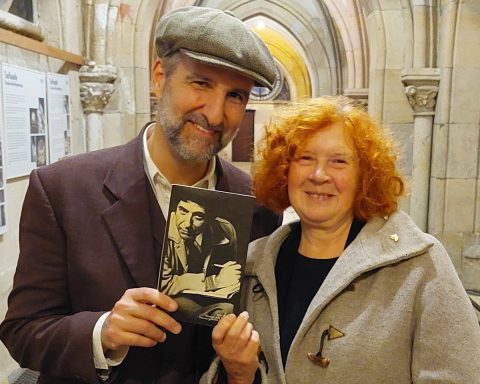Eurydice is a love story. However, the principal relationship is that of Eurydice and her father (played by Matthew Hendershot), not her and Orpheus.
The almost saccharine sweetness of their young love lacks depth in the first act. It is also awkward, ungainly, needy, and real. In the second act, after Orpheus resolves to find her, Danny Coposescu’s passionate portrayal provides the growth their innocent affair so desperately needs. The most significant development, however, is found in the tender love story between father and daughter. He follows her life from the underworld, writing her letters without the hope that she will ever get to read them.
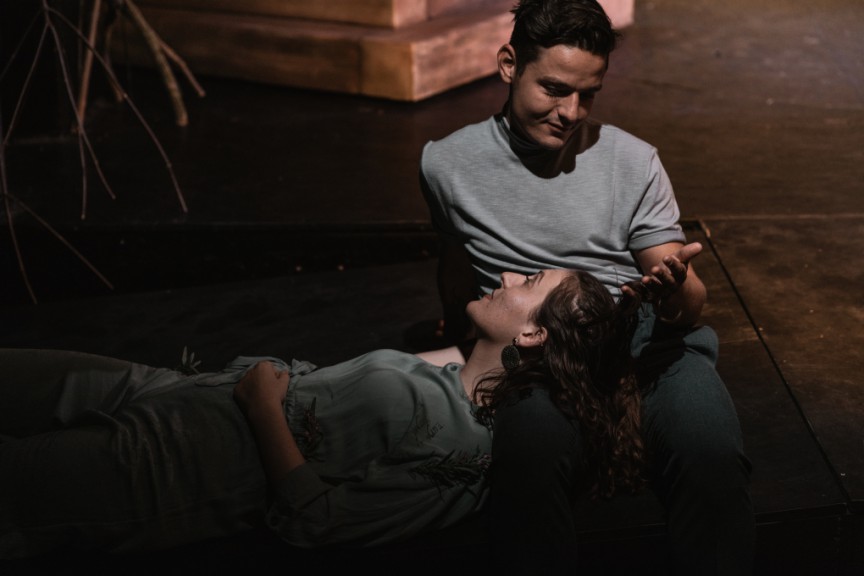
Eurydice states that weddings are primarily for fathers and daughters, as it marks the day their marriage to each other ends. This is poignantly illustrated in the touching scene where her father, in the underworld, mimes walking her down the aisle. He greets guests, sharing a joke, becomes emotional, looks at her on his arm with pride and then gazes solemnly ahead.
Hendershot runs through the gamut of emotions in this place that allows none.
“Crying is not allowed!”, as the Stones keep braying at Eurydice, and at us. They are hilarious, and without a doubt the most original characters in the play. Brash, silly, unsympathetic and obnoxious, they instruct Eurydice on the rules of the underworld and cackle at her flawed human reactions and emotions.
At intermission I had a very interesting conversation with Robert and Charley, who were there with their parents, about the first act. What do you think is the crux of the play? I asked them both. “Names,” said Robert without hesitation, “in the underworld everyone loses their names.” Right, I concurred, and their identities, their senses of self. Who are you without your name?
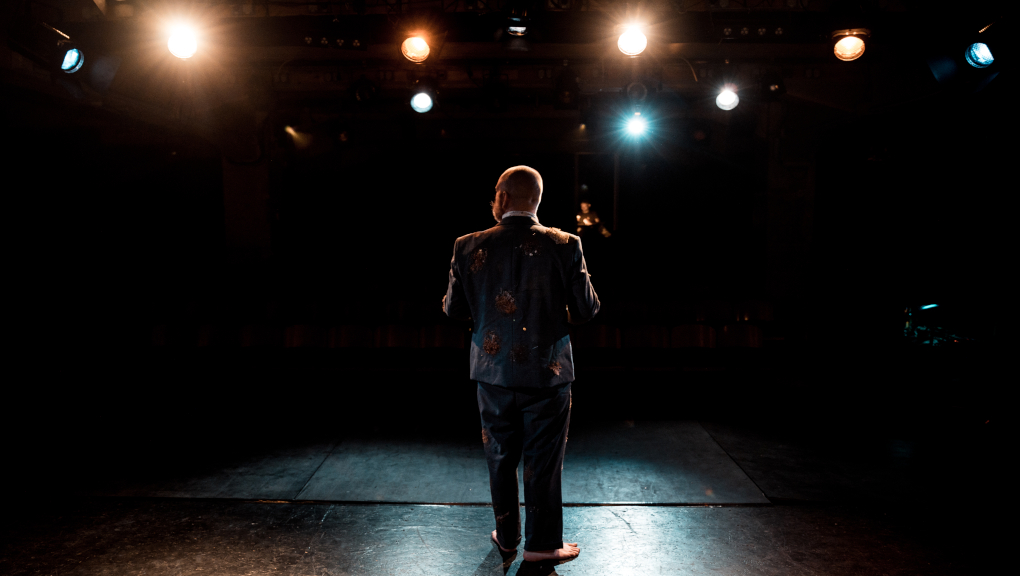
How do you talk about things for which there are no words?
When Eurydice first meets her father in the underworld, she not only doesn’t recognize him, but mistakes him for a porter. She doesn’t understand the word ‘father’, having lost her memories (as everyone who enters the underworld does) in the River Lethe.
He explains by saying he is like the tall tree she liked to sit under as a child. Then the confides in her that he is the only one who has managed to retain his words, and proceeds to reteach her their meanings. He regales her with stories from their past, and it is through these reminiscences that the relationship between them blossoms.
Charley had a different take on what the most crucial aspect of the play was. “The letters,” she responded to my question. “They provide the structure of the story.” She confessed to having been moved almost to tears by Orpheus reading his first letter to Eurydice after her death. Danny Coposescu’s raw, authentic expression of emotion is compelling. When he gets to the end of the letter, he balls it up, half turns away from us shouting, “NO!” I got goosebumps.
Director Julia Kragh noted how hard he worked. In addition to his natural talent, she mused, is his absolute dedication to the role. He worked very closely with Parwaneh Mirassan on the music, and the Song of Twelve Instruments evolved throughout rehearsals.
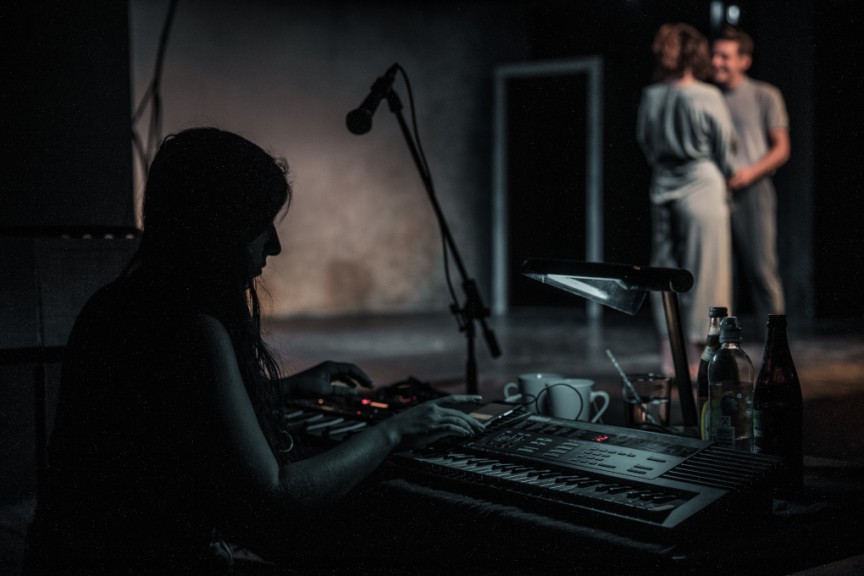
He sings it as he enters the underworld: a song that moves the Stones to tears.
Georgia Wilkinson has a very stylized, unnatural, almost OTT style that I wasn’t sure suited the role of Eurydice. I kept feeling that I want to turn her down about 50%, especially during the first act. In fact, this is the one thing we all agreed on during our lively intermission discussion. Well, except for my dear friend Peter. He vehemently disagreed with all of us. He said the play ranges from the very stylized Stones to the realism of the Father, and that the role of Eurydice should occupy the space between. In achieving that delicate balance, Wilkinson’s style would marry well with the surreal, fantastical feel of this tragicomedy.
The Lord of the Underworld / the Nasty, Interesting Man is the perfect embodiment of this dichotomy.
As the Nasty, Interesting Man (Glenn Abel) in the first act he is suave, charming. He lures Eurydice away from her own wedding, with talk of having found her father’s letter. It is when running away from him that she falls to her death.
When she next encounters him, as the Lord of the Underworld, Abel rides in on a toddler’s tricycle, wearing a propeller cap and red dungaree shorts. He is petulant, silly, coy, taciturn. When Orpheus descends into the underworld, solemnly singing the song of Eurydice, the contrast between them couldn’t be more clear.
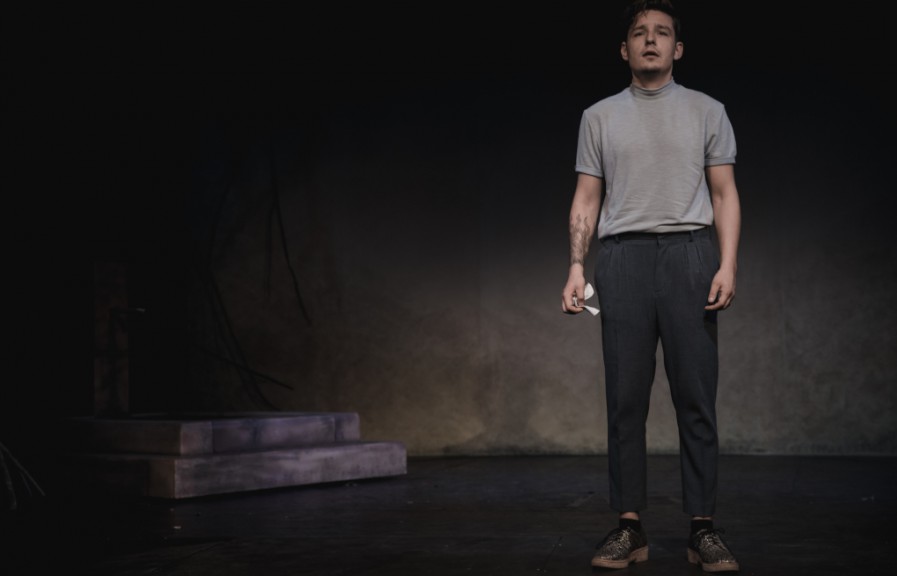
While Hendershot had moments of naked authenticity right off the bat, he grew more confident as the play progressed. The bit of nerves are hardly surprising, considering it was opening night! In the second act everyone seemed to relax into their roles, and I believe they really warmed up from the second night on.
Go see this play. It is brilliant, and evoked strong opinions of everyone I spoke to afterwards. It is a fantastical journey. A visceral re-imagining of the ancient Greek myth. Considered with grace, humor and a nod to the bizarre from the perspective of the little-known wife of Orpheus.


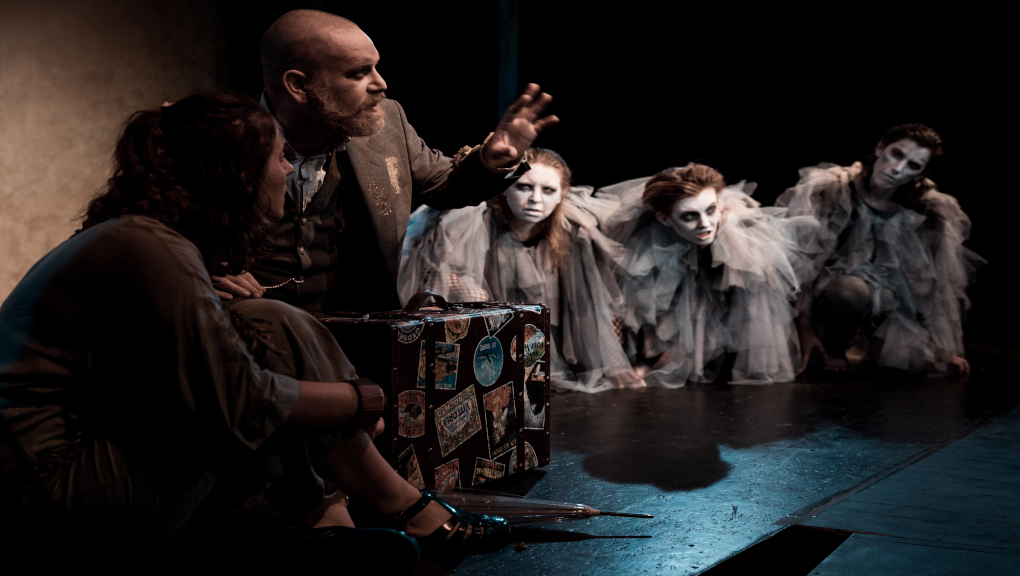
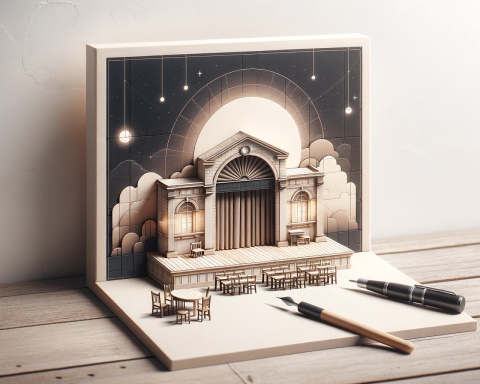
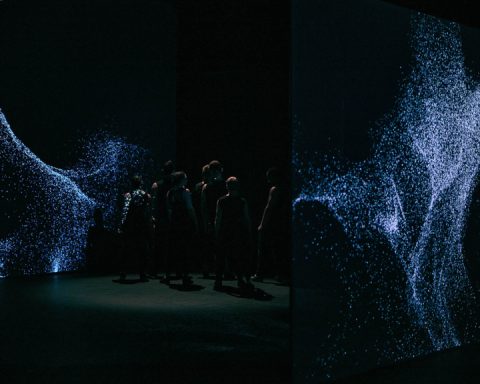
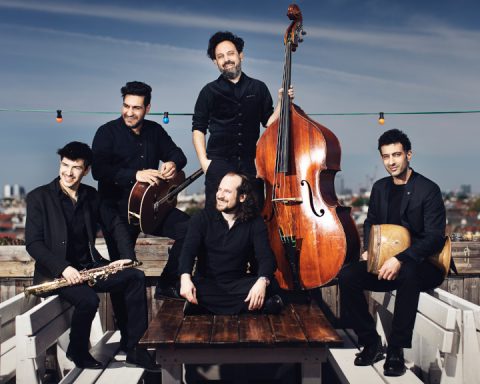




![Wine & Paint event on 9 Nov. 2024 at Felix Restaurant, Leipzig. Photo: Florian Reime (@reime.visuals] / Wine & Paint Leipzig](https://leipglo.com/wp-content/uploads/2024/12/pixelcut-export-e1733056018933-480x384.jpeg)
